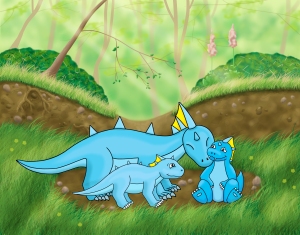People ask me what the moral is in my book.
 My Aunt works in a library and often does readings for children. She told me she likes it when a kid’s book has a moral, and she can explain it to the children after reading the book.
My Aunt works in a library and often does readings for children. She told me she likes it when a kid’s book has a moral, and she can explain it to the children after reading the book.
I read a piece of writing advice from a children’s author that said to forget about morals completely, or to make them so subtle you won’t notice them.
Is it just down to personal taste or are there authors using morals so badly that people advise against it?
Don’t get me wrong I don’t think I’m going to influence a child’s future or change their life around by offering a moral. But I think having a subtle moral or message gives the book a more complete feel and might make someone say ‘aww,’ at the end. I think it’s unfair to steer away from them completely. I don’t write a book in order to have a moral, but I think it’s ok to have a theme that expresses a positive element, even something so simple as; it’s good to help people.
The moral (or message) in my book – The Water Dragons: Too Heavy to Fly, is about being yourself. Simple enough a message right?
What do you think about having morals in kid’s books? Ye or nay?
Thanks for reading!
In my next article I’ll be talking about My greatest compromise in The Water Dragons.

All stories have a moral base, whether written for children or adults.This is not necessarily intentional. It is based on the innate morality or the writer’s world view. Children’s books can be deliberately moral (look at the 19th century chap books aimed at children about being good, and evil being rewarded by punishment etc.) This is because many adults think they should teach children the right way to do things. I think this is sadly manipulative and would rather depend on the natural story telling and the innate good morality of the storyteller.
You own charming stories have this quality..
That’s a really good point, not all my stories have an obvious moral, some simply have moral ideas expressed in the story 🙂